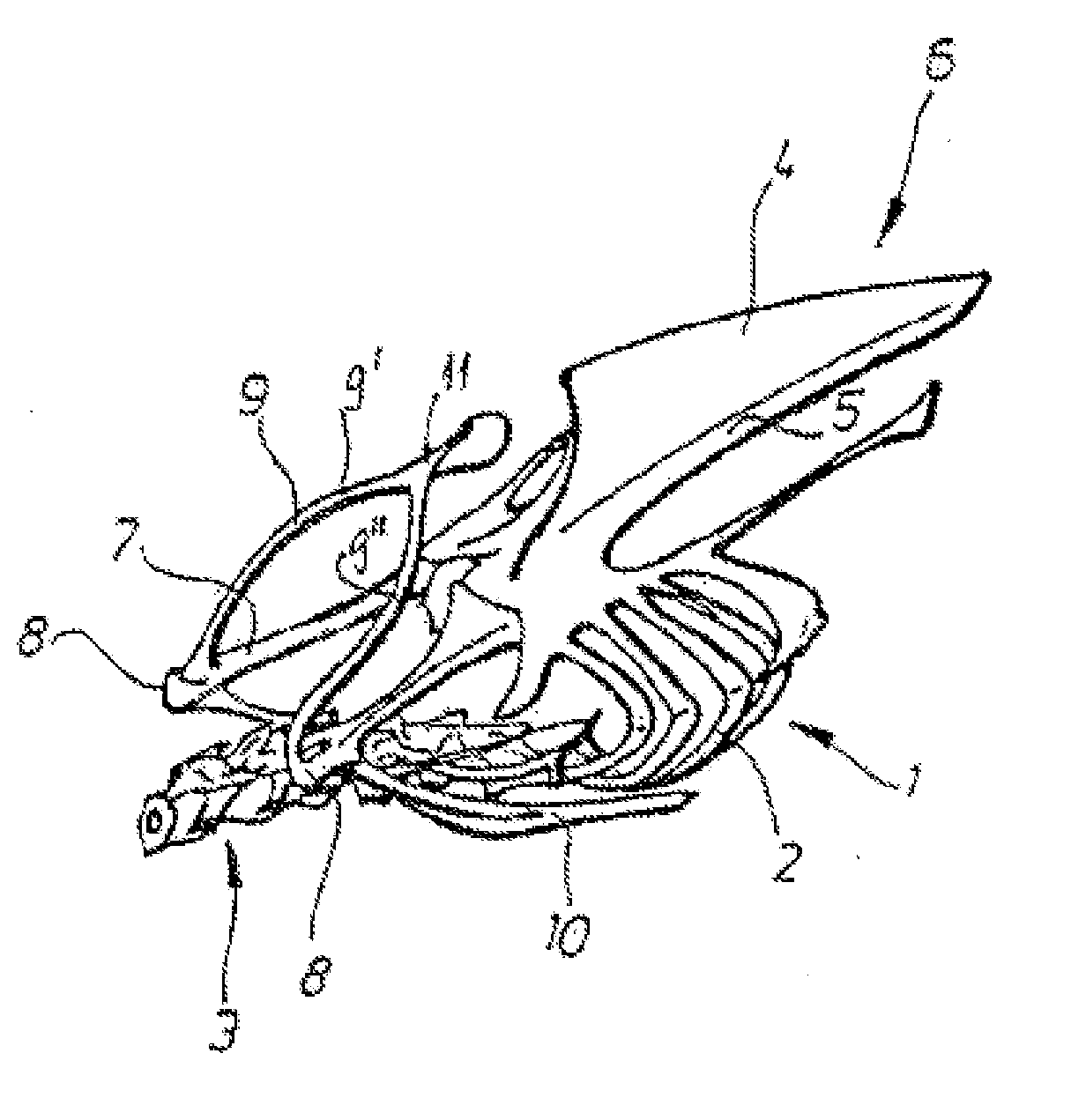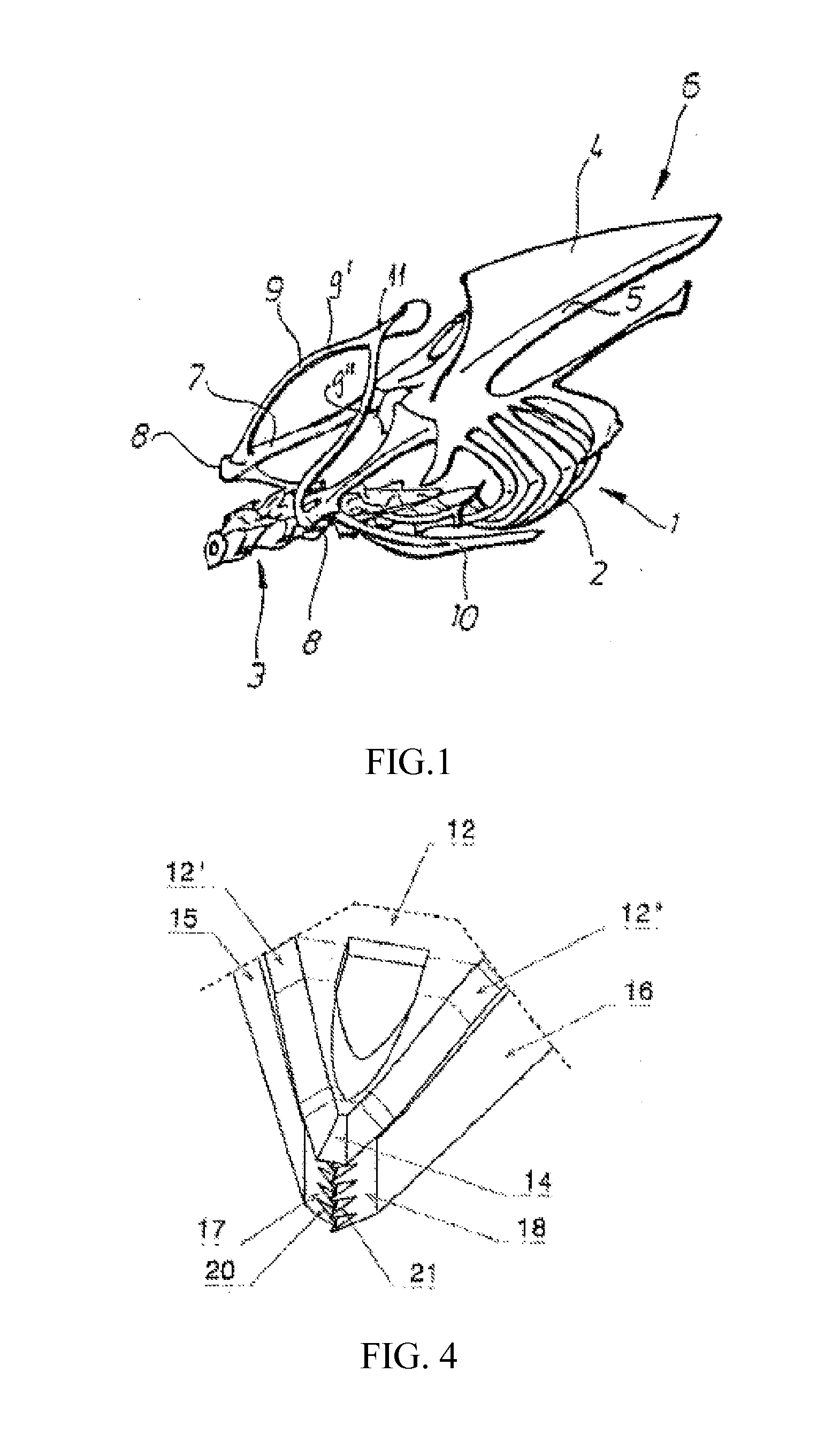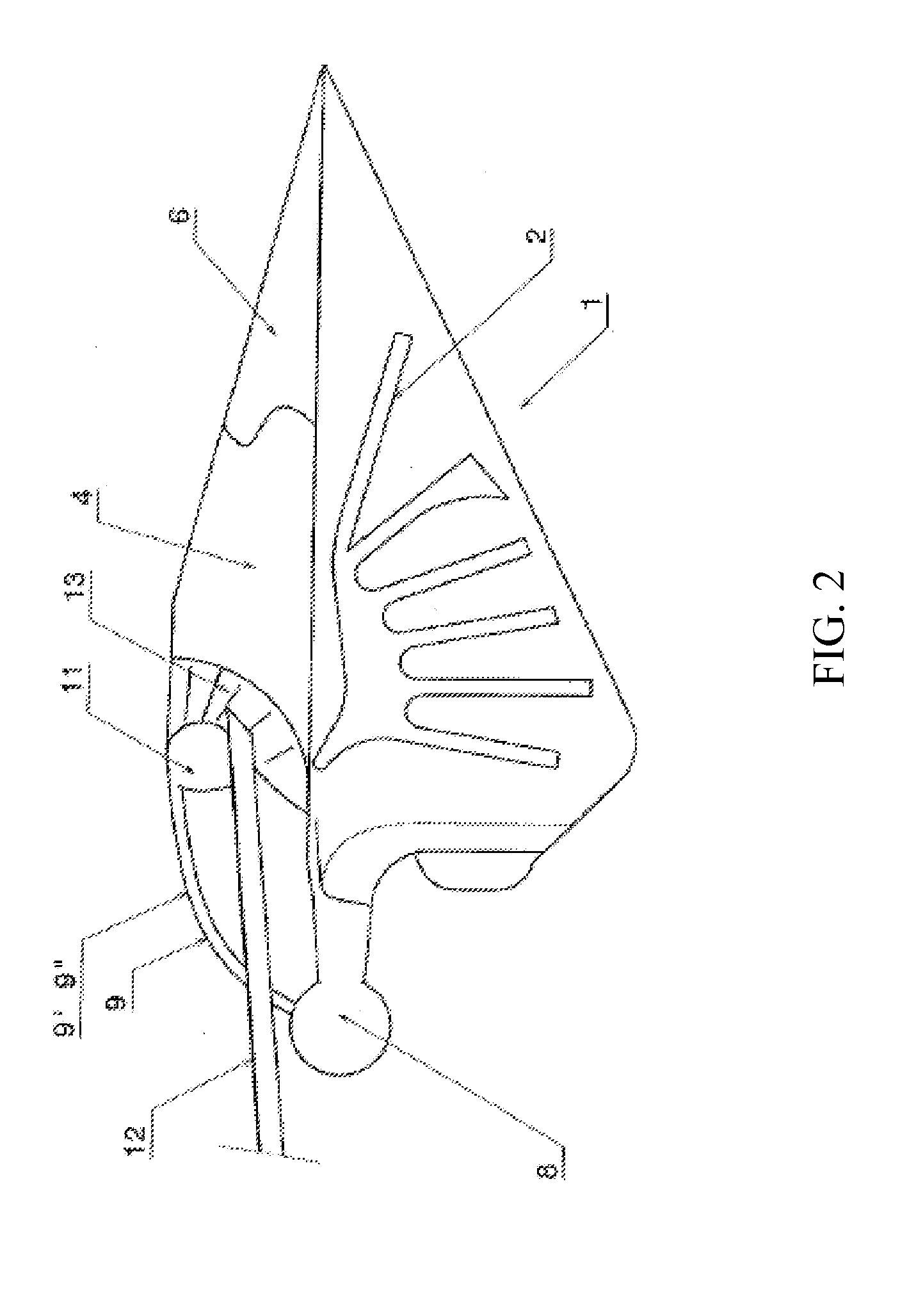Method and device for processing part of a slaughtered poultry carcass
a technology for slaughtered poultry and parts, which is applied in the field of slaughtered poultry parts and processing devices, can solve the problems of deteriorating commercial value of slaughtered poultry meat, cumbersome removal of wishbones from carcass parts, and difficulty in removing wishbones, so as to improve the efficiency of two cutting blades, improve the ease of use, and increase the yield of mea
- Summary
- Abstract
- Description
- Claims
- Application Information
AI Technical Summary
Benefits of technology
Problems solved by technology
Method used
Image
Examples
Embodiment Construction
[0024]For purposes of describing the invention, reference now will be made in detail to embodiments of the invention, one or more examples of which are illustrated in the drawings. Each example is provided by way of explanation of the invention, not limitation of the invention. In fact, it will be apparent to those skilled in the art that various modifications and variations can be made in the present invention without departing from the scope or spirit of the invention. For instance, features illustrated or described as part of one embodiment, can be used with another embodiment to yield a still further embodiment. Thus, it is intended that the present invention covers such modifications and variations as come within the scope of the appended claims and their equivalents.
[0025]Taking first reference to FIG. 1, the bone structure of a carcass part 1 is shown. Apart from the meat (not shown) that naturally is present, the carcass part 1 has ribs 2 connected to the vertebral column 3 ...
PUM
 Login to View More
Login to View More Abstract
Description
Claims
Application Information
 Login to View More
Login to View More - R&D
- Intellectual Property
- Life Sciences
- Materials
- Tech Scout
- Unparalleled Data Quality
- Higher Quality Content
- 60% Fewer Hallucinations
Browse by: Latest US Patents, China's latest patents, Technical Efficacy Thesaurus, Application Domain, Technology Topic, Popular Technical Reports.
© 2025 PatSnap. All rights reserved.Legal|Privacy policy|Modern Slavery Act Transparency Statement|Sitemap|About US| Contact US: help@patsnap.com



